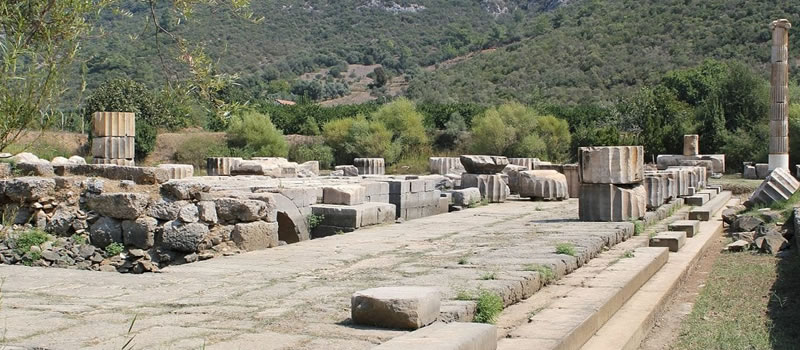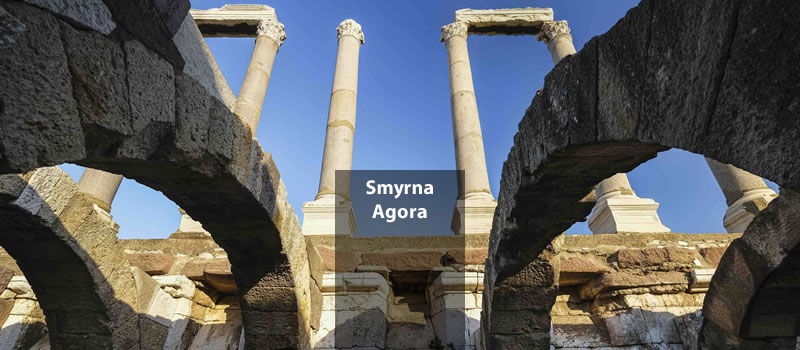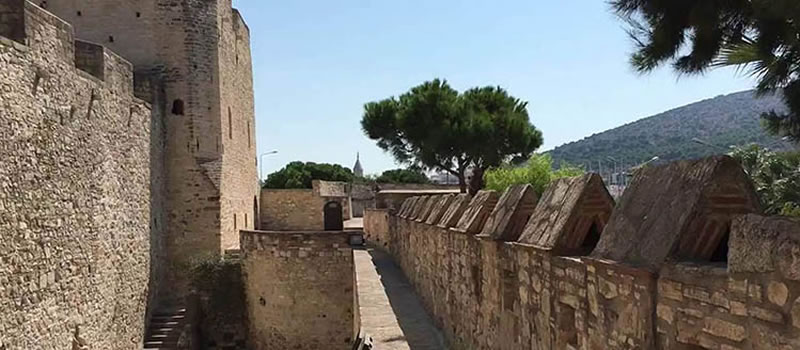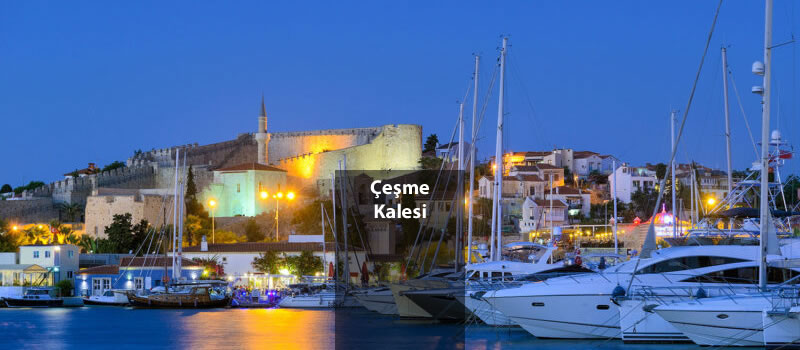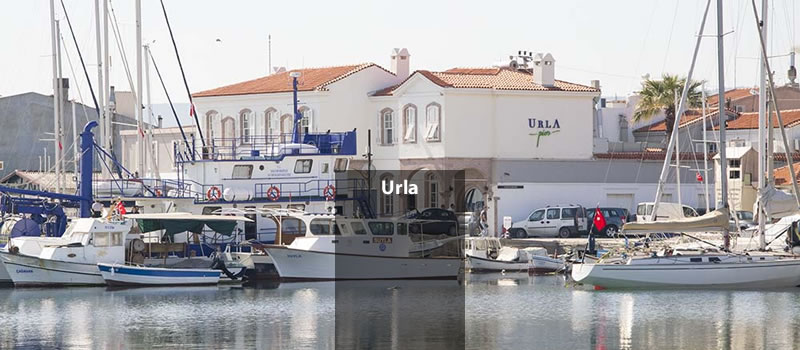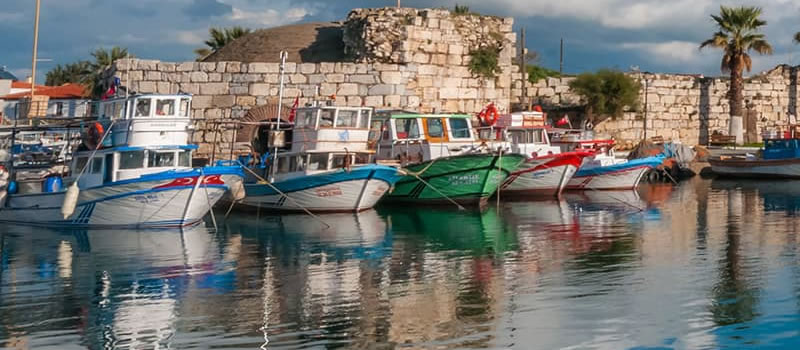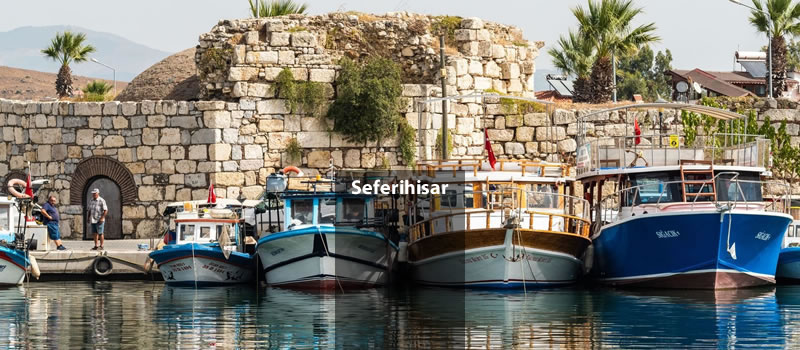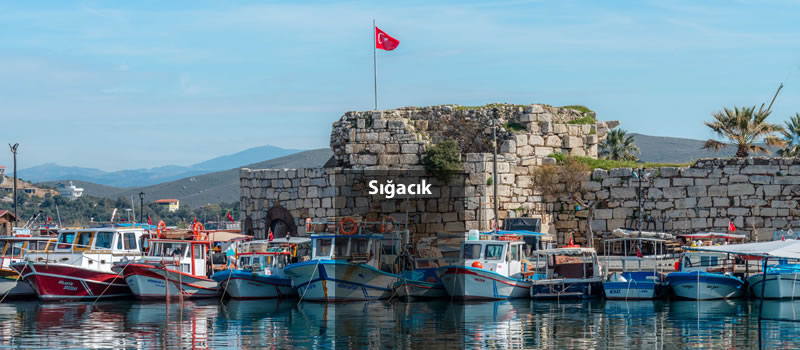Selcuk Ephesus Ancient City
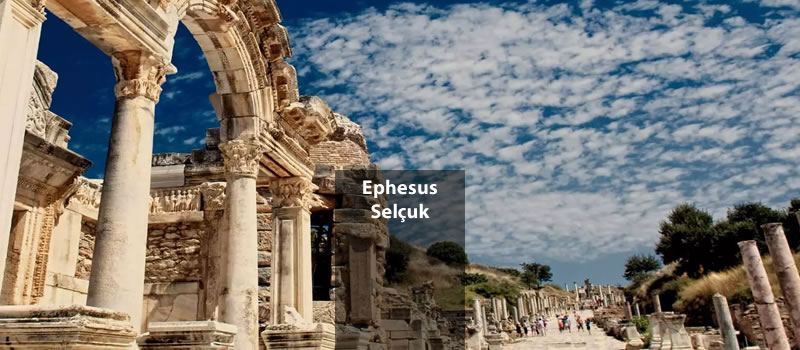
Ephesus Ancient City, located in the Selçuk district of İzmir Province, Turkey, has been a hub of multiple civilizations throughout history. Originally founded by Ionian colonies in the 10th century BC, Ephesus evolved into one of the major trade and cultural centers of its time. As an important port city during antiquity, Ephesus gradually receded inland due to the silting of the Aegean Sea.
Ephesus holds significant importance in Christian history. Saint Paul, a pivotal figure in Christianity, resided and preached in Ephesus for a time. It is also believed that Saint John, attributed as the author of the Gospel of John, lived and died here.
The city is home to several significant structures, among them the Temple of Artemis, considered one of the Seven Wonders of the Ancient World. Today, only a small part of the temple remains. The Ephesus Ancient Theatre, with a capacity of 25,000, was one of the largest open-air theatres of its era and still hosts various events today.
The Library of Celsus, known as the second-largest library of the ancient world, was constructed during the reign of Emperor Hadrian. This magnificent structure served not only as a library but also as a monumental tomb. Its facade still stands today, conveying the grandeur of the ancient world to visitors.
Ephesus also features many structures reflecting the social life of the ancient world, including the Bouleuterion, the city-state's administrative center, and aqueducts built to meet the city's water needs.
Today, Ephesus is a renowned tourist destination, famous for its rich archaeological finds and well-preserved structures. Each year, hundreds of thousands of tourists visit Ephesus to witness this historical heritage and experience the ambiance of the ancient world. Listed as a UNESCO World Heritage Site, Ephesus is also crucial for sustainable tourism and the preservation of cultural heritage.
Ephesus holds significant importance in Christian history. Saint Paul, a pivotal figure in Christianity, resided and preached in Ephesus for a time. It is also believed that Saint John, attributed as the author of the Gospel of John, lived and died here.
The city is home to several significant structures, among them the Temple of Artemis, considered one of the Seven Wonders of the Ancient World. Today, only a small part of the temple remains. The Ephesus Ancient Theatre, with a capacity of 25,000, was one of the largest open-air theatres of its era and still hosts various events today.
The Library of Celsus, known as the second-largest library of the ancient world, was constructed during the reign of Emperor Hadrian. This magnificent structure served not only as a library but also as a monumental tomb. Its facade still stands today, conveying the grandeur of the ancient world to visitors.
Ephesus also features many structures reflecting the social life of the ancient world, including the Bouleuterion, the city-state's administrative center, and aqueducts built to meet the city's water needs.
Today, Ephesus is a renowned tourist destination, famous for its rich archaeological finds and well-preserved structures. Each year, hundreds of thousands of tourists visit Ephesus to witness this historical heritage and experience the ambiance of the ancient world. Listed as a UNESCO World Heritage Site, Ephesus is also crucial for sustainable tourism and the preservation of cultural heritage.



